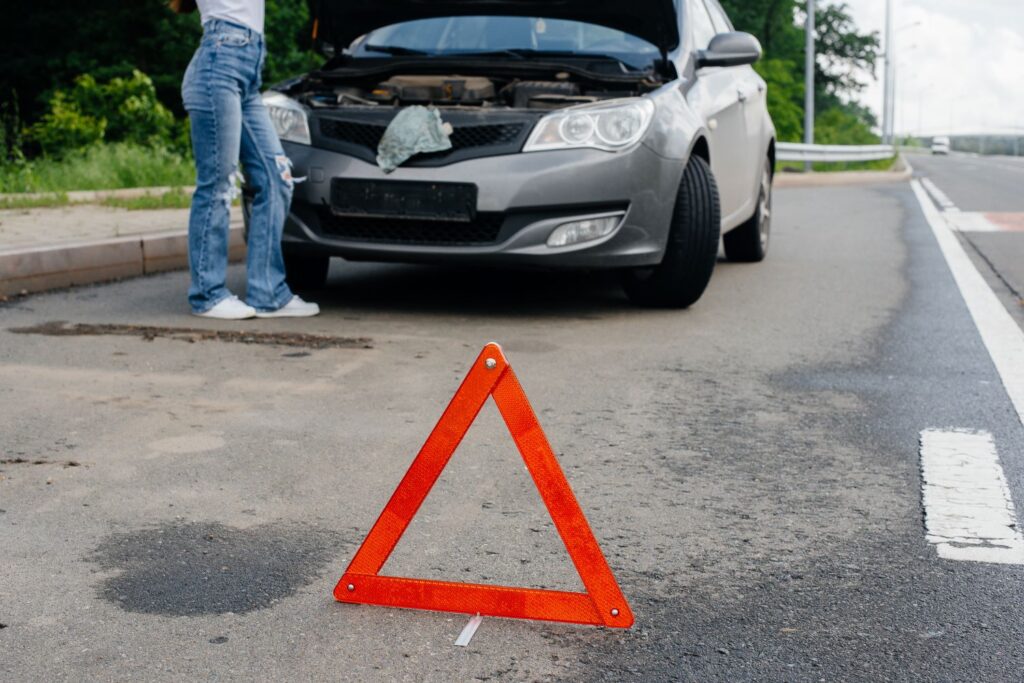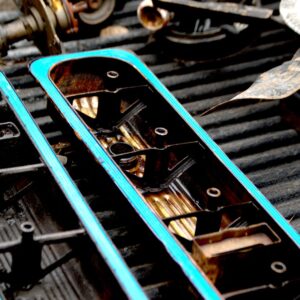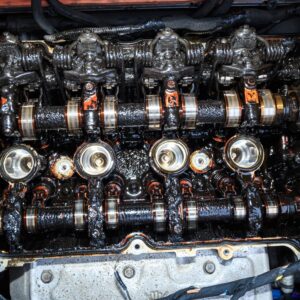Nobody likes a stalled engine, especially if it derails your entire day and leaves you stranded in the middle of nowhere. Well, your vehicle doesn’t like it one bit either. Just as a common cold can be a symptom of the flu, a stalled engine can also be a sign of a bigger problem for your vehicle.
In this article, we’ll discuss what to do if your car suddenly stalls on the road, the common causes for an engine stalling, and how you can prevent it.
What Does It Mean When a Car Stalls?
Imagine driving down a busy road, when without warning, your engine stalls. The steering becomes stiff and you suddenly need to apply a lot more brake pedal pressure to slow or stop the vehicle. A stalled engine puts you at risk of getting into traffic accidents, and it’s also pretty inconvenient if you end up stranded somewhere because of it.

What To Do if Your Car Suddenly Stalls on the Road
In this situation, you can try to restart the engine and see if it immediately stalls again. If it does, restart it and apply just a bit of throttle to see if you can keep it alive. If you can, you’ll be able to drive it home or to a shop. If you can’t keep it going, you’ll need to call a tow truck. Remember: do not exit your vehicle in heavy traffic if you didn’t manage to make it to the shoulder. Turn on your flashers and call 9-1-1.
You can try to restart the engine and see if it immediately stalls again. If it does, restart it and apply just a bit of throttle to see if you can keep it alive.
–Richard McCuistian, ASE Certified Master Automobile Technician
Why Is Your Vehicle Stalling?
There are several reasons why your engine might be stalling:
Battery Failure
In most cases, it’s easy to tell when your car has a low or dead battery: your headlights can start to dim, your horn might sound softer, and your engine can suddenly stall in the middle of a drive. More pointedly, the car won’t even start in many cases or it might spin slower than usual while starting.
If the battery has been replaced on some vehicles, adaptive idle learning can be lost and the vehicle might start-and-stall after replacing the battery. Typically, just driving the vehicle will enable the ECM/PCM to recover and restore the necessary adaptive data so the vehicle will idle again.
Poor Fuel System
Have you been experiencing any issues with your fuel system lately? Because if the answer’s yes, then it might be the culprit behind your engine stall. The tricky part is figuring out which exact part of your fuel system is the cause.
A failed fuel pump can cause your engine to stall; meaning, you’re up for a much bigger repair bill. As much as your engine hates not having enough fuel, it doesn’t like having too much fuel either. In extreme cases, your engine can also stall from receiving too much fuel, though usually, this will just cause black smoke and a possible no-start if the spark plugs get too wet with fuel.
Note that a faulty part such as a clogged fuel filter, weak fuel pump, or a leaking fuel line could be preventing your engine from getting enough fuel but this won’t ever cause engine stalling. The fuel filter will typically cause a loss of power on hard acceleration rather than stalling or a no-start.

Worn Timing Belt or Chain
The camshaft and crankshaft need to be in constant sync with each other. If the timing belt or chain allows the shafts to spin out of time with one another, the engine will typically stall and not restart
Electrical Issues
Loose wiring, bad ignition components, etc. can cause the engine to stall. If any ECM/PCM input or output signals are lost because of bad wiring or faulty circuits, then you might end up stranded somewhere with a stalled engine.

Transmission Problems
Have you noticed any issues with your vehicle’s transmission? If you have, then it might be related to your engine stalling. The torque converter clutch can cause the engine to stall if it malfunctions and doesn’t release, but this is very rare.
If you own a manual vehicle and it keeps stalling, then it usually comes down to two things: a worn-out clutch and driving technique. A worn-out clutch won’t be able to engage your gears fully and cause your engine to stall. Your engine can also stall if you release the clutch too quickly.
Of course, automatic vehicles can stall too, and one possible culprit is a broken torque converter. The torque converter is responsible for keeping the engine running, and if it breaks down, it’ll most likely stall your engine.
How To Prevent Engine Stalling
You can classify the different causes of engine stalling into two categories: mechanical issues with the vehicle itself and driver error. Addressing whichever is causing issues for your vehicle should prevent your engine from stalling.
Replace Any Broken Parts
Replace any broken parts like fuel pumps or timing belts to keep your engine from stalling. Broken parts can compromise other systems in your vehicle too, so it’s best not to delay and call your mechanic as soon as possible.
Practice Your Driving Technique
A stalled engine is more common with manual vehicles, and it’s usually because of the driver’s technique. Choosing the wrong gear, stopping without pushing the clutch down, and releasing the clutch too quickly can all cause your vehicle to stall. Driving a manual vehicle isn’t easy for everyone, but you can get used to it over time if you just keep practicing.
Any information provided on this Website is for informational purposes only and is not intended to replace consultation with a professional mechanic. The accuracy and timeliness of the information may change from the time of publication.






























